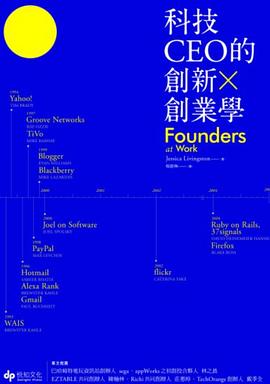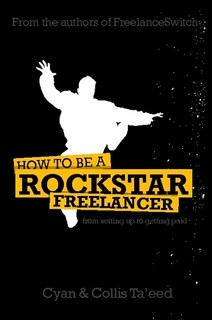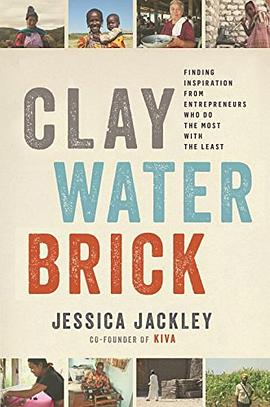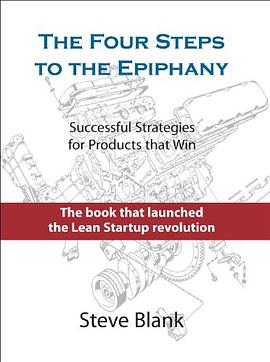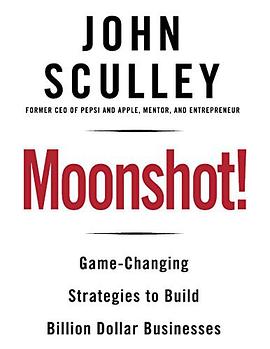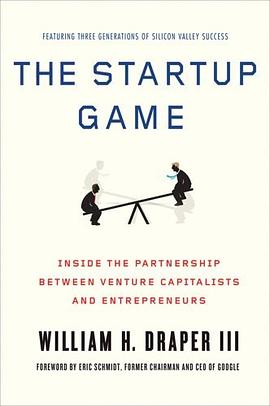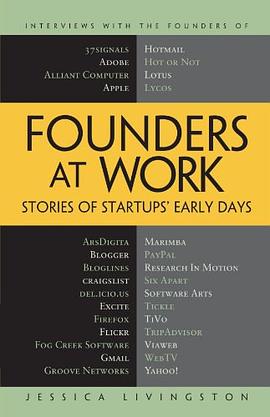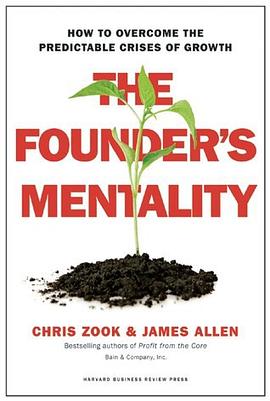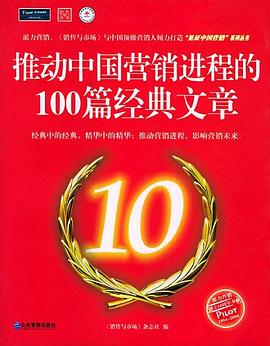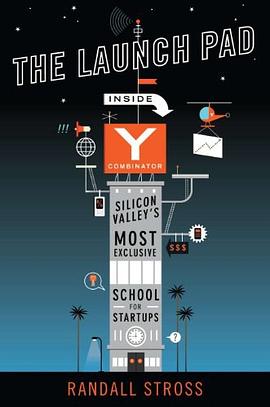

具体描述
Investment firm Y Combinator is the most sought-after home for startups in Silicon Valley. Twice a year, it funds dozens of just-founded startups and provides three months of guidance from Paul Graham, YC’s impresario, and his partners, also entrepreneurs and mostly YC alumni. The list of YC-funded success stories includes Dropbox (now valued at $5 billion) and Airbnb ($1.3 billion).
Receiving an offer from YC creates the opportunity of a lifetime — it’s like American Idol for budding entrepreneurs.
Acclaimed journalist Randall Stross was granted unprecedented access to Y Combinator’s summer 2011 batch of young companies, offering a unique inside tour of the world of software startups. Most of the founders were male programmers in their mid-twenties or younger. Over the course of the summer, they scrambled to heed Graham’s seemingly simple advice: make something people want.
We watch the founders work round-the-clock, developing and retooling products as diverse as a Web site that can teach anyone programming, to a Wikipedia-like site for rap lyrics, to software written by a pair of attorneys who seek to “make attorneys obsolete.”
Founders are guided by Graham’s notoriously direct form of tough-love feedback. “Here, we don’t fire you,” he says. “The market fires you. If you’re sucking, I’m not going to run along behind you, saying, ‘You’re sucking, you’re sucking, c’mon, stop sucking.’” Some teams would even abandon their initial idea midsummer and scramble to begin anew.
The program culminated in “Demo Day,” when founders pitched their startup to several hundred top angel investors and venture capitalists. A lucky few attracted capital that gave their startup a valuation of multiple millions of dollars. Others went back to the drawing board.
This is the definitive story of a seismic shift that’s occurred in the business world, in which coding skill trumps employment experience, pairs of undergraduates confidently take on Goliaths, tiny startups working out of an apartment scale fast, and investors fall in love.
作者简介
Randall Stross writes the “Digital Domain” column for The New York Times and is a professor of business at San Jose State University. He is the author of several acclaimed books, including eBoys, Planet Google, and The Wizard of Menlo Park. He has a Ph.D. in history from Stanford University.
目录信息
读后感
http://www.paulgraham.com/startupmistakes.html October 2006 In the Q & A period after a recent talk, someone asked what made startups fail. After standing there gaping for a few seconds I realized this was kind of a trick question. It's equivalent to aski...
评分http://www.paulgraham.com/startupmistakes.html October 2006 In the Q & A period after a recent talk, someone asked what made startups fail. After standing there gaping for a few seconds I realized this was kind of a trick question. It's equivalent to aski...
评分创业者的“圣殿”应该有两个,一处是纳斯达克的交易所,另一处是Y Combinator办公所在的山景城。前者是创业者最终想要达到的目的地,后者是大部分创业者初创阶段最想出发的起点。 Y Combinator为什么如此出名?如果仅仅是因为保罗·格雷厄姆,那这个理由未免太牵强。看看这个...
评分* 项目筛选 * * 10min面试 * 项目进展 * * 在硅谷3个月,自己选择办公地址 * 汇报前一周为排练日(连续七天) * 三个月后汇报 * 项目辅助 * * 创始基金,估值后占6-7%股份(+额外投资) * 每周二晚聚会 * 每周组织讲座,有reading课程(博客等形式)...
评分YC创业营投资人语录 创业者本身比他们提出的创业想法更重要。如果创业者团队拥有与成功密不可分的品质,那么再简陋的想法配上这只强大的团队也会让人刮目相看。 如果你想白手起家,极有可能会遭遇挫折。大多数创业公司都会失败,这是商业的天性。 年纪轻轻的创业者所犯的一个...
用户评价
这本书最大的魅力在于它营造出的那种独特的氛围。作者的文字功底深厚,能够通过精准的词汇和优美的句式,勾勒出一幅幅生动鲜活的画面。无论是宏伟的太空场景,还是角色内心深处的感受,都被描绘得淋漓尽致。我感觉自己仿佛置身于那个世界,呼吸着那里的空气,感受着那里的情感。故事的起伏和转折也设计得非常巧妙,总能在不经意间触动我内心的弦。我喜欢那些看似平淡却蕴含深意的对话,也喜欢那些充满爆发力的冲突。人物的成长弧线也让我印象深刻,他们并非天生的英雄,而是经历了挫折、迷茫,最终找到了自己的方向。这种真实的人物塑造,让我对他们产生了深深的共鸣。这本书不仅仅是一个故事,更是一种体验,它让我重新审视了自己的生活,也让我对未来充满了希望。
评分这本书的叙事节奏把握得非常好,无论是紧张的动作场面,还是情感的细腻描绘,都能让读者保持高度的专注。作者的语言风格简洁而富有力量,每一个词语都像是精心打磨过的宝石,闪耀着独特的光芒。我喜欢作者在描写人物内心活动时所展现出的深度,那些纠结、矛盾和抉择,都写得非常真实。书中的人物并非扁平的符号,而是有血有肉的个体,他们有自己的过去,有自己的梦想,也有自己的伤痛。我常常在阅读的过程中,与他们一同经历喜怒哀乐。这本书给我最大的感受是,它让我看到了人类在面对未知时所爆发出的惊人潜能,以及在团队合作中凝聚的力量。它也让我思考,在追求目标的过程中,我们应该如何平衡个人与集体的利益。
评分这本小说在叙事结构上给了我很大的惊喜。作者并没有选择传统的线性叙事,而是通过多线叙事和时空交错的巧妙编排,将一个宏大的故事展现在读者面前。一开始,我需要花费一些精力去梳理不同人物的故事线索,但随着阅读的深入,我逐渐体会到这种结构带来的独特魅力。它就像拼图一样,每一个碎片都独立存在,却又在最终的组合中展现出完整的图景。这种方式也让故事充满了悬念和张力,我总是迫不及待地想知道不同支线的故事将如何汇合,以及它们之间隐藏着怎样的联系。人物的塑造也很有层次感,他们并非一成不变,而是在经历中不断成长和变化,展现出人性的复杂和多面。我特别欣赏作者在描绘人物内心活动时所展现出的细腻笔触,那些微妙的情感变化,那些挣扎和抉择,都写得非常到位。这本书需要读者投入更多的思考和耐心,但一旦你沉浸其中,就会发现它带来的回报是巨大的。
评分读这本书的过程,对我来说更像是一次深入的哲学探讨,尽管它披着科幻的外衣。作者通过引人入胜的情节,巧妙地抛出了关于生命意义、关于人类在宇宙中的位置等一系列宏大命题。我发现自己经常在阅读的间隙停下来,思考书中人物的选择和遇到的困境,以及这些选择背后所蕴含的深刻道理。书中对情感的描绘也十分细腻,尤其是那些跨越界限、超越物质羁绊的情感,它们深深地打动了我。我喜欢作者没有刻意去教导什么,而是通过角色的经历和内心的独白,让读者自己去领悟。这种“润物细无声”的叙事方式,让我觉得更加真诚和有力量。书中的一些对话,也充满了智慧的火花,让我受益匪浅。我甚至会把一些让我印象深刻的句子记下来,时不时拿出来回味。这本书就像一面镜子,映照出我内心深处的一些想法,也让我对生活有了新的认识。它不仅提供了娱乐,更给予了我精神上的滋养。
评分这本书最让我印象深刻的是它在叙事上的独特性和艺术性。作者巧妙地运用了非线性叙事手法,将不同时间线和人物的故事穿插交织,形成了一个复杂而引人入胜的叙事网络。一开始,我需要花费一些精力去梳理人物关系和事件的先后顺序,但随着阅读的深入,我逐渐体会到这种结构带来的独特魅力,它像是一个巨大的拼图,每一个碎片都承载着重要的信息,最终组合成一幅完整的画面。这种叙事方式也为故事增添了层层叠叠的悬念,让我始终保持着强烈的好奇心,渴望知道所有线索将如何汇合。人物的刻画也同样出色,他们并非简单的善恶二元对立,而是拥有复杂的内心世界和动机,他们的成长和变化贯穿始终,让我对人性有了更深的理解。书中对情感的细腻描绘,以及那些关于选择、牺牲和救赎的探讨,都深深地触动了我。
评分读完这本书,我感受到了一种前所未有的震撼和启发。作者的文字如同拥有魔力,能够将最宏大的宇宙场景和最细腻的人类情感完美地融合在一起。故事的构思极其大胆,它不仅仅是关于一场太空冒险,更是一次关于人类生存意义、关于科技与人性的辩证关系的深刻探讨。我喜欢作者在描写那些前沿科技时所展现出的严谨性和想象力,它让我看到了科学的无限可能,也让我思考科技发展所带来的伦理挑战。书中人物的命运交织在一起,他们的选择和行动,往往充满了复杂的人性挣扎,让我看到了在极端环境下,人性的光辉与阴暗。我尤其欣赏作者在描绘那些精神层面的冲突时所展现出的深度,它不仅仅是关于物理上的对抗,更是关于信念、价值观的碰撞。这本书让我对宇宙、对人类自身的理解都得到了极大的升华。
评分这本书就像是一场精心策划的太空发射,从第一页开始,我就被一种强烈的期待感所吸引。作者构建了一个充满细节和想象力的世界,每一个场景都仿佛在我眼前展开,让我身临其境。故事的节奏把握得恰到好处,既有紧张刺激的高潮,也有温情脉脉的低谷,让我在阅读的过程中情绪跌宕起伏。人物塑造尤为成功,他们并非完美无瑕,而是有着各自的缺点和挣扎,这反而让他们更加真实可信,我能感受到他们的喜怒哀乐,并为他们的命运而牵挂。特别是主角,她的成长轨迹让我看到了普通人在面对巨大挑战时所迸发出的勇气和智慧。书中对科技的描绘也并非生硬的堆砌,而是巧妙地融入剧情,为故事增添了科幻的魅力,同时也引发了我对未来科技发展的思考。我特别喜欢作者在细节上的打磨,例如对飞行器内部构造的细致描写,或是对遥远星系风貌的生动刻画,这些都展现了作者深厚的功底和丰富的想象力。总而言之,这是一本让我沉浸其中,久久不能忘怀的作品,它不仅仅是一个故事,更是一次关于探索、关于勇气、关于人类潜能的深刻对话。
评分我必须承认,这本书的知识密度非常高,但作者却能将复杂的科学概念和技术细节以一种易于理解的方式呈现出来。作为一名对科学充满好奇但又非专业人士的读者,我从未感到被信息 overwhelming,反而是在享受学习新知识的乐趣。作者在描写那些前沿科技时,不仅仅是停留在概念层面,而是将它们与人物的命运和故事的发展紧密地联系在一起,让这些科技有了生命力。我尤其喜欢书中关于宇宙探索的部分,那些对未知星系的想象,对星际旅行的描述,都充满了令人振奋的科幻色彩。它激发了我对科学的无限遐想,也让我对人类探索宇宙的未来充满了信心。这本书不仅有科学的严谨,更有文学的温度。人物之间的互动,情感的纠葛,都处理得十分得体,为冰冷的科技世界增添了一抹人性的色彩。读完这本书,我感觉自己对宇宙和科技都有了更深的理解,也更渴望去探索那些未知的领域。
评分我特别喜欢这本书中对“希望”这个主题的探讨。在看似绝望的境地里,总有那么一丝微弱的光芒,支撑着主角们前行。作者并没有刻意煽情,而是通过细腻的笔触,展现了希望如何在绝境中悄然滋生,又如何在逆境中绽放。这种力量感,让我觉得非常鼓舞人心。书中的人物,无论是主角还是配角,都有着各自的挣扎和追求,他们的故事交织在一起,共同构成了这个充满人情味的世界。我最欣赏的是作者对于细节的把握,那些微小的动作,那些不经意的表情,都能传达出人物丰富的情感。我甚至能想象出他们生活的场景,感受到他们内心的波动。这本书带给我的不仅仅是阅读的乐趣,更是一种精神上的洗礼。它让我相信,即使面对再大的困难,只要心中怀有希望,就一定能找到前进的方向。
评分我必须说,这本书是那种一旦开始就无法停下来的类型。作者构建了一个极其迷人且充满想象力的世界,每个细节都充满了匠心。从飞船的内部设计到外星殖民地的风貌,都被描绘得栩栩如生,让我仿佛亲身经历了一场史诗般的冒险。人物的塑造尤其精彩,他们并非完美无缺的英雄,而是有着各自的缺点、挣扎和成长的普通人,这使得我能够深刻地代入和理解他们的情感。主角的旅程充满了挑战和蜕变,我跟随她的脚步,感受她从迷茫到坚定的过程,这给了我极大的触动。书中对科技的运用也令人赞叹,它不仅仅是冰冷的技术展示,而是与剧情紧密结合,推动着故事的发展,同时也引发了我对未来科技发展方向的深度思考。每一章的结尾都带着一丝悬念,让我迫不及待地想要知道接下来会发生什么,这种阅读体验是极其令人愉悦的。
评分其实没有读到最后,但也没必要了。作为一个天使级别的投资人,Graham也没有很出众啊。哦不,我的意思是不是那么目空一切的出众啊。
评分不是每一个人都适合做初创,然而能够在人群里找出那些极少的适合做企业家的人的唯一办法是让很多人都去尝试。在美利坚对失败的宽容,对专业主义的痴迷,对科学和数据的专注,对疯狂和古怪的包容,对创新精神的尊重,以及各种种种不可思议的元素构成了这样一方神奇的土壤。很开心我来到了这里。我想在这片土地上写下我的故事。我希望当未来的人们回看21世纪伟大企业家的璀璨星河时,我会是其中闪耀的一颗。
评分YC也开始投 hardware startup 了
评分:无
评分其实没有读到最后,但也没必要了。作为一个天使级别的投资人,Graham也没有很出众啊。哦不,我的意思是不是那么目空一切的出众啊。
相关图书
本站所有内容均为互联网搜索引擎提供的公开搜索信息,本站不存储任何数据与内容,任何内容与数据均与本站无关,如有需要请联系相关搜索引擎包括但不限于百度,google,bing,sogou 等
© 2026 book.quotespace.org All Rights Reserved. 小美书屋 版权所有


